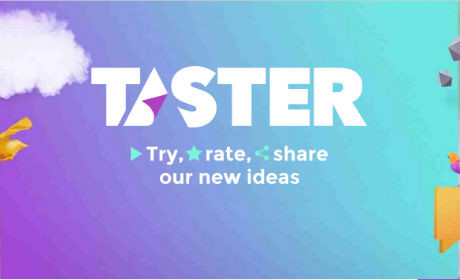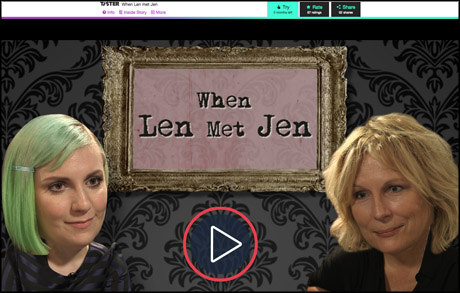
The BBC has today launched a new platform designed to be a space for experimental ideas including interactive stories and short-form content.
BBC Taster is designed to "challenge the storyteller to tell the story in a different way, to tell the story in a way that takes advantage of what technology makes available," said Ralph Rivera, director, BBC Future Media, addressing an audience at BBC New Broadcasting House.
"I believe that's the challenge for all media companies going forward, that's the challenge that we're taking on, and we're going to be doing that in the open, engaging with the public to let us know how we're doing in terms of taking that challenge up," he said.
Taster will explore innovative ideas from departments across the BBC, including online, radio and TV, with an emphasis on collaboration.
Your Story, for example, re-purposes the BBC News archive to allow users to create a personalised and shareable timeline of the big stories from the year they were born.
The outlet is also experimenting with interactive video such as When Len Met Jen – an interview between Lena Dunham and Jennifer Saunders.
A 10-minute cut of the interview was originally shown on Newsnight, but BBC Taster features the full interview, including 40 minutes of unseen footage, with interactive features which allow the user to click on the clips they want to see next.

Screenshot from BBC Taster
"We know that interactivity can drive engagement, and obviously there are lots of different approaches to video online," Will Saunders, the BBC's creative director for digital, told Journalism.co.uk.
"The advantage of having the Taster platform is that you don't put your finger on any one thing and go 'right, let's just build that'. You try lots and lots of things out and you work out exactly how good TV teams and others can be working in a different medium, and also test [if] the software does what we want it to do."
The aim, he added, is to encourage creative teams across the BBC to "try and approach storytelling in a different way".
To experiment with as many news formats as possible, the BBC is also utilising off-the-shelf software as well as its own custom-built products.
The interactive video mentioned above, for example, was created using the Treehouse web app by Interlude.
"You don't have to start and always build a site from scratch," said Saunders.
"What's exciting about this I think is finding the necessary software that you think has the necessary 'stretch' in it that you'd give that to creative teams across the BBC to play with."
Another impetus for the BBC's drive towards innovation, explained Saunders, is the emergence of new platforms on which BBC audiences are consuming content.
Saunders pointed out that tablet ownership in UK households has now exceeded 60 per cent, and mobile penetration for 18 to 30 year olds has now surpassed 85 per cent.
In addition, BBC Online now receives an equal amount of traffic from mobile and from desktop computers.
The outlet will also be experimenting with immersive stories designed for Oculus Rift, and although Saunders noted that the BBC had been working with the Natural History unit on this as well as other BBC partners, he said the outlet still had "a few months to go" before developments are made in this area.
"At each point you want to be assessing, what does a user want from it, what's the creative opportunity around it?" he said.
"I think Oculus is fantastic... but I don't think we've even started to touch on what we can do with it creatively inside the organisation."
The new platform is being delivered by the BBC Future Media team as well as a "guerrilla" digital content innovation unit based in Birmingham, he added.
Free daily newsletter
If you like our news and feature articles, you can sign up to receive our free daily (Mon-Fri) email newsletter (mobile friendly).









